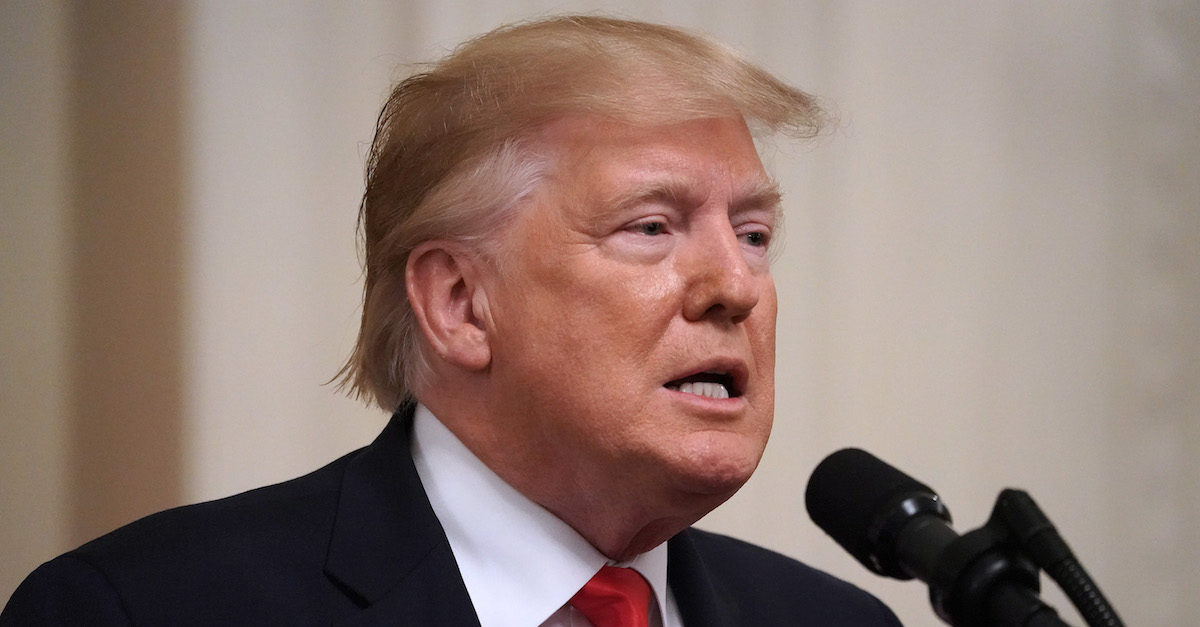
During his Congressional testimony in February, Michael Cohen testified that President Donald Trump intentionally misstated his personal net worth on official insurance and banking documents to best serve his business interests.
“It was my experience that Mr. Trump inflated his total assets when it served his purposes, such as trying to be listed amongst the wealthiest people in Forbes, and deflated his assets to reduce his real estate taxes,” Cohen testified.
Cohen’s claims were confirmed by newly unearthed tax documents which show that Trump provided widely differing valuations of his New York City properties to potential lenders than he reported to the City tax authorities, per a Wednesday ProPublica report.
According to the report, “Trump told the lender that he took in twice as much rent from one building as he reported to tax authorities during the same year, 2017,” and “gave conflicting occupancy figures for one of his signature skyscrapers, located at 40 Wall Street.”
Nancy Wallace, a professor of finance and real estate at the Haas School of Business at the University of California-Berkeley, said the inconsistencies in the reports amounted to “versions of fraud,” adding that, “this kind of stuff is not OK.”
By reporting different sets of numbers, Trump was making his properties appear more valuable to potential lenders while low-balling the government entity charged with setting his property taxes. While the real estate professionals ProPublica interviewed for the report said there was “no clear explanation for multiple inconsistencies in the documents,” they also stopped short of saying they were proof of criminal activity.
Former federal prosecutor and CNN legal analyst Renato Mariotti agreed there was some smoke here, but agreed that the story in itself didn’t prove fraud. He cited his experience prosecuting such cases.
“If the statements to either the bank or the tax authorities are false, that’s a problem,” Mariotti said in response to the report.
Mariotti, however, was quick to point out that prosecuting cases of this nature can be extremely difficult, particularly when needing to convince a jury that the complicated tax documents at issue were “knowingly” submitted with “intent to defraud.”
“If the statement to the bank is false, it would almost certainly be ‘material,’ which is a legal requirement that it be a false statement about something that would matter to the bank,” Mariotti said. “The other requirements are that the defendant made the statement ‘knowingly’ and with the ‘intent to defraud.’ I’ve tried large, complex bank fraud cases, and those elements are always the hardest to prove.”
“False statements are the base of a bank fraud case but you need more,” he added.
He said the new information is certainly worth pursuing, noting that Manhattan District Attorney Cy Vance is currently investigating Trump’s business and seeking Trump’s tax returns, but stopped short of claiming the documents provided slam-dunk evidence of wrongdoing.
“The bottom line is that today’s reports by [ProPublica] are troubling and merit an investigation by authorities. It’s worth noting the Manhattan DA is investigating Trump’s taxes and Trump’s lawyers are fighting in court to prevent his attempt to obtain Trump’s tax returns,” Mariotti wrote. “But if lawyers or ‘legal experts’ tell you that these discrepancies in and of themselves prove bank fraud or tax charges, they are misleading you. They are troubling and merit investigation, but significantly more is needed.”
[Image via Chip Somodevilla/Getty Images.]